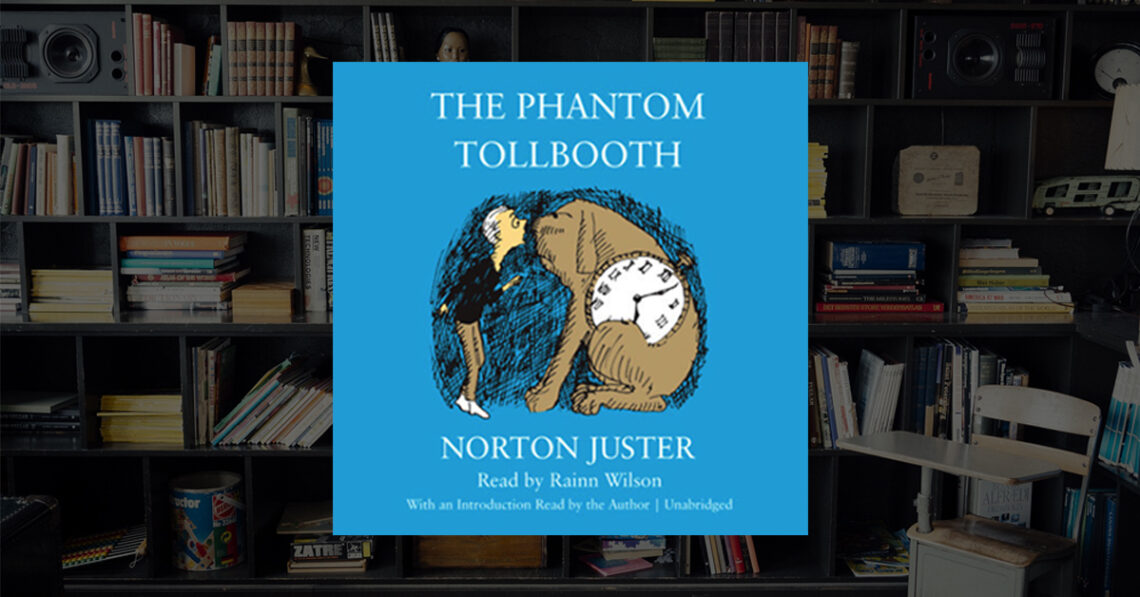
Book Review: The Phantom Tollbooth
This was a recommendation from one of Reddit’s many “What is Your Favorite Book” forums — a total blind draw as far as purchasing the book and not knowing at ALL what waited for me therein.
In short, the book was a perfect palate cleanser after a fairly robust book on theology that I had completed previously. At ~250 pages with relatively large text, the book is easily readable in a weekend, and can be accessed by those in grade school (which is where many of the aforementioned Redditors first read the book).
The simple illustrations by Jules Feiffer also remind me very much of the ones found in Roald Dahl’s classic books, such as Charlie and the Chocolate Factory and The BFG.
But don’t let the fact that it was intended for younger folk dissuade you — the book is chalk full of great lessons and deeper meanings.
The summary is as follows: A young boy by the name of Milo is bored and fed up with everyday life; but one day, when a mysterious tollbooth appears in his room — he decides to enter it and embark on a magnificent quest in a mysterious land filled with wondrous locations such as “The Sea of Knowledge,” “Digitopolis,” and “Foothills of Confusion.”
It’s from here that Milo encounters many strange individuals along the way, and finding himself in circumstances that parallel many real-life situations.
For instance, one of the first places Milo finds himself in is Dictionopolis, which is a city obsessed with all aspects regarding to the precision of the English language (Hence “Diction” in the name of the city). The protagonist, by no fault of his own, commits a transgression against the people of the city by inadvertently sowing chaos in a market that deals in exchanging words (literally — one merchant sells physical adjectives, and another, unique adverbs). One of the chief law enforcers of the city, Officer Short Shrift, asks Milo if he’s like a long or short sentence as punishment.
Naturally, Milo chooses the short sentence, to which the officer replies:
“I am” as that is the shortest sentence he knows, and then proceeds to close the case, letting Milo off scott-free.
This is one of many whimsical encounters that Milo has throughout the magical land, with all of them pertaining to concepts, emotions, or motifs as alluded to by the names of the locations he enters.
In another chapter, Milo and his unlikely companions find themselves on the “Island of Conclusions,” due to saying things absent-mindedly like “Nothing can possibly go wrong now.” And in yet in another set of circumstance, the crew meets a symphony orchestra conductor, who leads a large group of musicians that don’t play music — instead, they play colors that contribute to any scene imaginable; from the “warm yellow sunshine… blazing neon lights, and the soft, muted tones of a foggy day.”
You get the idea.
The moral question presented by The Phantom Tollbooth actually reminds me very much of the Pixar movie Soul, which can be boiled down to “Beauty is everywhere, even in the small things.”
Perhaps Ferris Bueller had the book in mind when he said: “If you don’t stop and look. around once in a while, you could miss it.”
In short, I didn’t find the book revolutionary, and part of that could be because it was meant for a slightly younger demographic than a 30 year old dude.
But I still found it to be an enjoyable read, and The Phantom Tollbooth is an excellent reminder to us all that circumstances are largely a matter of perception.
No matter how boring life may seem, there truly is magnificence in the world around us.
My score: 3.5/5
Noteworthy Highlights/Takeaways/Quotes:
P. 233: “You must never feel badly about making mistakes,” explained Reason quietly. “as long as you take the trouble to learn from them. For you often learn more by being wrong for the right reasons than you do by being right for the wrong reasons.”
… “but it’s not just learning things that’s important. It’s learning what to do with what you learn and learning why you learn things at all that matters”
